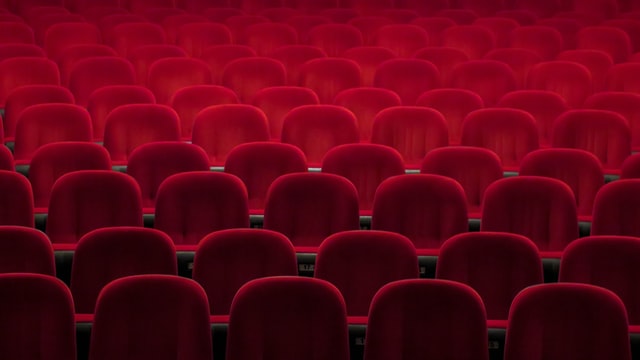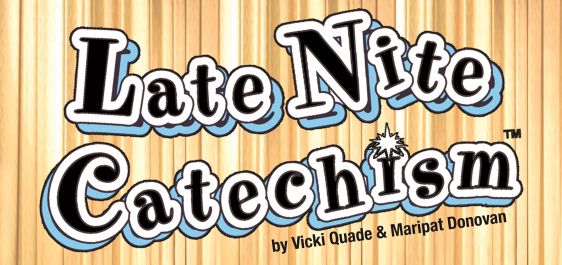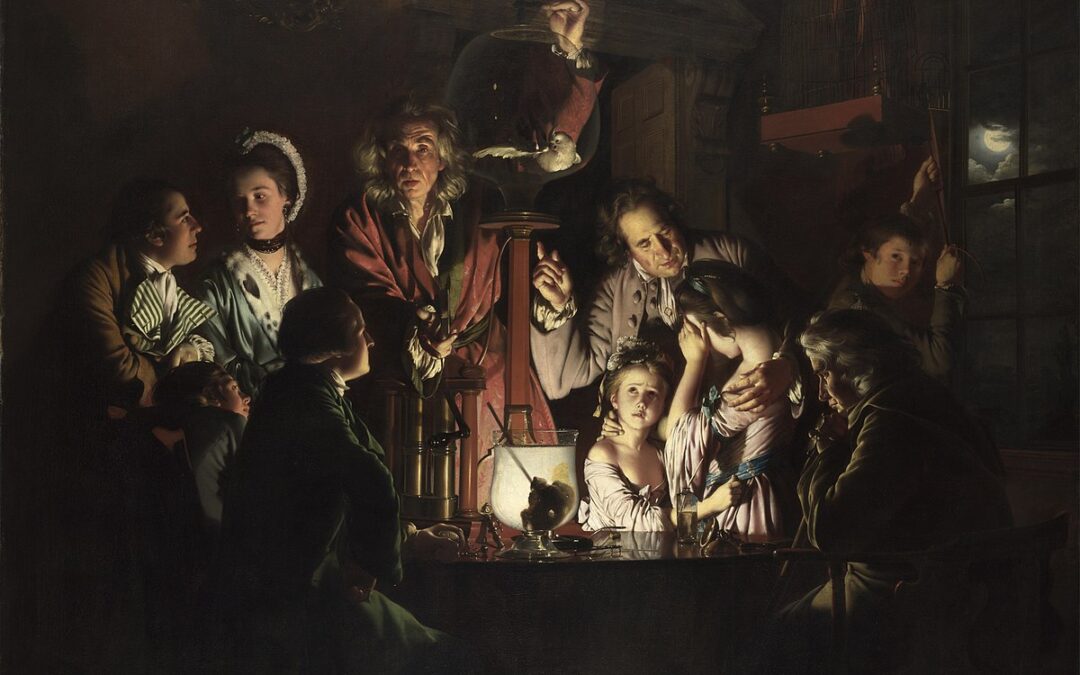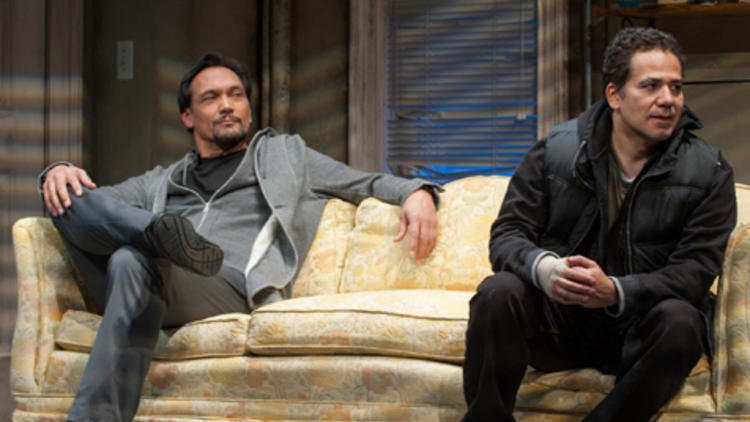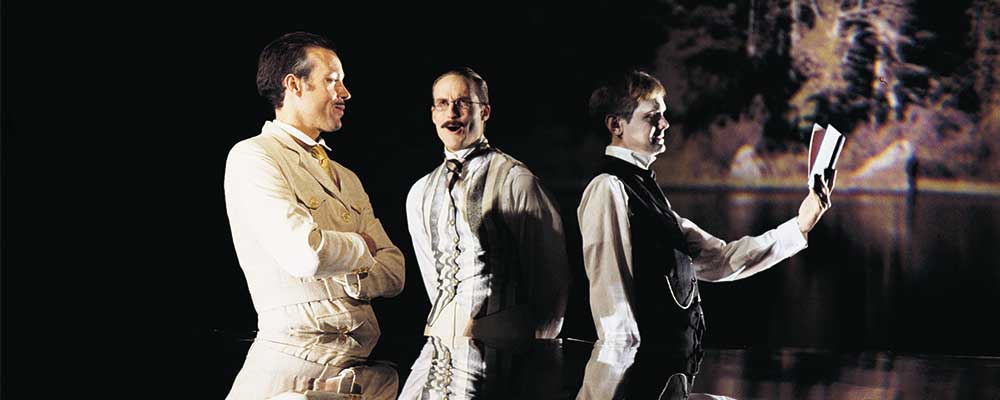The following article was originally published on http://centerstagechicago.com in 2001
Theatre Etiquette: Gone But Not Forgotten
by Joseph Bowen
As a theatre artist, and as a frequent audience member, there is nothing like the experience of being in a theatre, whether on stage performing or participating from the audience. The last part of that sentence is important, “participating from the audience.” What most people don’t realize is that whether you are on stage or viewing the show from a comfortable (or less than comfortable) seat, you are part of the performance. At the risk of having other artists disagree with me, theatre is not theatre without an audience. Theatre is NOT just what’s happening on the stage, it’s the combined energies of actors, technicians and audience. Theatre truly is magic: an art form created out of the energy flowing between people in a dark room.
If you love the theatre, you may not actually be able to put the reason into words, but when you go see a play or musical, you are experiencing something that will never be repeated. Each performance is special. Just think of it, these people on stage are feeling what they’re feeling for the first and only time. If an actor had a fight with their spouse or won the lottery, that will be somewhere in their performance. For that time only.
ATTENTION SPAN
Today’s Internet and TV culture, for all its advantages, is creating a segment of people that seem to be unable to sit in a room with others for a couple of hours and enjoy what they see. If you’ve been to the theatre lately, you know what I mean. You can spot these people. These are the people who feel a need to talk to their neighbor, set their chiming watches, leave their cell phones on and their pagers on audible. You’ve probably had an experience with these folks, and if you’re like me, you’d like to take their Stagebill and beat them with it. My message is not as subtle as the PA announcement you hear prior to the performance, but it’s what theatres want to say to you: FOR GOD’S SAKE, TURN OFF YOUR PHONES AND CHIMING WATCHES, AND AT LEAST TURN YOU PAGER TO VIBRATE MODE. DO NOT TALK OR NOISILY EAT CANDY DURING THE PERFORMANCE. As a side note, if you do eat individually wrapped candies during the performance, and you think unwrapping it slowly is quieter than just doing it quickly, you are mistaken. If you’re one of the people who do not honor these requests, I have one question for you – what makes you so special? The people that are sitting around you deserve to enjoy the show as much as you do. And guess what? They probably paid as much if not more to see the show as you did. Your portable phone or pager probably has voicemail, so if you really need to, check it at intermission. If you are not capable of taking a couple of hours for yourself, maybe it’s time to re-think things.
A nationwide attention span shortage seems to be gripping the country. Faster Internet, fast food, instant messages; all of these detract from people’s ability to concentrate on any one thing for more than 30 minutes at a time. An Internet page will change when you want it to, or you’ll always have the commercials to talk, get a drink and go to the bathroom. With live entertainment, you do not have that luxury.
While we’re on the cell phone topic, I had two experiences last year that amazed me. The first happened at the Shubert Theatre, during a performance of the play Proof. During a particularly quiet moment in the play, a cell phone rang. The person who owned the phone it was either dead asleep or too embarrassed to turn it off, so it just rang and rang. Finally, it stopped ringing, and you could hear everyone in the theatre breathe a sigh of relief. Then, the voicemail tone went off, and continued to do so periodically until intermission. Here’s a question: if that person was too embarrassed to turn the phone off during the show, why didn’t they turn it off before the show? The second experience I had was very positive. My wife and I went to Ireland and England and saw a total of five plays in both Dublin and London. It surprised me that there were no announcements telling people to turn their cell phones off. But then I realized that announcements like that are unnecessary in Europe, because during all of the plays we saw, there was narry a cough in the house, let alone a chiming watch or a cell phone. I thought – FINALLY, a culture that really respects the bond between performer and audience.
FEAR OF COMMITMENT
Aside from the growing lack of attention span in this country, there is another equally appalling trend. These are the people who can’t seem to derive enjoyment from anything they see. I’m convinced they do this because they don’t feel they can afford to give part of themselves to the event at hand. I think that’s another negative result of the Internet and TV culture. These days, people are used to being able to walk away from what they are viewing, and so are unable to fully invest themselves in it. Because of the fact that people are becoming less and less accustomed to being involved in anything, a certain amount of fear ensues. Yes, fear. Fear of being too heavily involved in something because of what may happen. I know that sounds silly, but think about it. These days, the only thing some people get excited about is sports, and that’s because it’s not embarrassing to get emotional about sports, but it seems to be with any other form of entertainment. Some people honestly feel that art is beneath them, or it’s unmanly to emotionally invest yourself in something. I have two words for these people: lighten up. People in Italy (including grown men) still go to the Opera and weep openly. I don’t see that ruining their society. What saddens me about this is that people that behave this way are only fooling themselves. Their inability to concentrate on the task at hand makes me wonder how they commit to anything. Including their families.
COMMON COURTESY
For an actor on stage, one of the most infuriating things is to come out for the curtain call and see people heading for the exits. It is my feeling that no matter what their reason for doing this, these people fail to realize one basic thing: the act of staying in your seat to show your appreciation for what you’ve just seen is a simple matter of common courtesy. This kind of behavior goes beyond the burning desire to be the first person to get your car out of the garage, it illustrates the growing apathy people feel for the arts and other people in general.
Another frustration is caused by those people who just can’t seem to make it to their seats on time. There is no excuse for that. That’s why the box office prints the performance time on the tickets. In the US, you can still get into the theatre after the show starts, but usually, in other countries, this is not permitted. The theatre listings for some shows in London actually state that latecomers will not be seated. This is perhaps most annoying, because it not only affects the performers on stage, it also annoys the other audience members. There is a now famous story about Brian Dennehy, performing the role of Willy Loman in Death of a Salesman on Broadway. During one performance, Mr. Dennehy noticed some latecomers arguing over seats, stopped in the middle of the scene and yelled at them to stop disrupting the show, and, if they hadn’t noticed, everyone else had gotten there on time.
Here’s an illustration of my point:
You throw a dinner party, and your guests are late; the appetizers are getting cold and the wine is getting warm. After they arrive, you decide to serve the appetizers. While the appetizers are being served, you hear one of your guests complaining about being dragged there by their spouse. Then, during the meal, while you and your spouse are telling an amusing story about your last vacation, one of your guests answers his ringing Cell Phone, leaving you to try to make yourself heard over his conversation. Then, when you are walking out of the kitchen with the dessert, your guests get up and leave, muttering something about parking. They leave you without a thank you for a great time. They leave you standing there, wondering. Was it something you said? The quality of the dinner?
That’s what it’s like standing on stage watching people head for the exits.
EMPATHY
Here’s what I suggest. Next time you go to the theatre, take a second to think about how good it feels to have some leisure time. Then look at the people around you. They’re nice people. Imagine if they were friends of yours. You’d want to make sure you didn’t do anything to offend them. Then the show starts. The actors walk on stage. They look good in their costumes, they have good speaking voices, they’re probably nice people as well, but the difference here is that they are there to entertain you, because you paid them to do so. When the performance ends, applaud for them to show them you appreciate the work they did for you. After the lights come back up, quietly leave the theatre and maybe even think about what you just saw. Maybe talk about it with the person you just shared this experience with. Think about how your life is enriched because of the experience you just had. Then get on your cell phone if you feel you need to.

